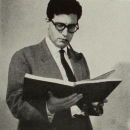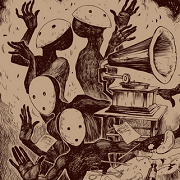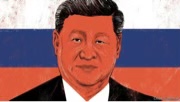|
If people want to continue the discussion from the Ukraine thread regarding the effectiveness of purges (and particularly the late 30s mass trials) and the relation to the fall of the USSR, I am really interested in that. I'll be honest here, I started from an anti-purge perspective and am gradually moving towards pro-purge but anti-terror. I have read various history books on the circumstances of the October revolution, the Civil War and the trials themselves. I read Lenin and Trotsky, but mostly articles, polemics and pamphlets, not large theory volumes (sorry, it's hard to stay focused). If you want to discuss this/educate me, I would appreciate that
|
|
|
|

|
| # ? Apr 30, 2024 06:03 |
|
AFancyQuestionMark posted:am gradually moving towards pro-purge New thread title?
|
|
|
|
I don't read the Ukraine thread but that's a conversation we've had in this thread before, probably more than once, so if you read back or do some kind of search you can probably find a similar discussion from the past. The general historical consensus is that the purges were enormously wasteful and counterproductive and hugely weakened the USSR on the eve of WW2, there were no actual threatening plots to uncover, and the purged people were in the large majority just innocent and loyal communists who happened to be found guilty by association of knowing somebody else who had already fallen victim to the purges for an equally arbitrary reason and named their friends and family members in confessions exacted by torture. That's not even getting into the nationally-targeted mass operations that were sometimes as arbitrary as deporting the USSR's entire Korean population from the Far East to Central Asia, killing thousands along the way, due to fears that they could theoretically spy for Japan during a war. There's a particular kind of internet guy that doesn't know the history very well but knows that Stalin was the leader of the USSR during WW2 and it was important that the USSR won WW2, so they Great-Man-History their way into buying the narrative that Stalin was just a Tough Leader Making Tough Choices and all his bad decisions were actually good decisions because in the end the USSR won the war, which is really transparently wrong when you actually read historical research on the USSR during the 30s and 40s and see just how much Stalin's bad decisions shattered Soviet society right before the war and contributed to hugely weakening the early Soviet war effort. And that's without even getting into the fact that arbitrarily arresting, imprisoning, torturing, and/or killing millions of innocent people is obviously morally heinous, or that you obviously can't trust confessions obtained via torture which is the only evidence against the overwhelming majority of the purged. If you wouldn't trust a confession obtained by waterboarding a "terrorist" at Guantanamo Bay, you shouldn't trust a confession obtained by beating a "fascist" during the Terror.
|
|
|
|
Look, there are a lot of people in the other thread that read Losurdo and such (I did not) and explain that Khrushev and Gorbachev's rise and the perrstroika was a consequence of not carrying out enough purges(including in the 60s and 70s). I want to understand this
|
|
|
|
Rise of Gorbachev was because by 1985 he was the last member of the politburo who wasn't braindead. Purges or not.
|
|
|
|
purges as a political mechanism are mainly there to keep the political organisation focussed and loyal to the leadership. i don't think there's much indication that a trotsky-like permanent revolutionary struggle would've helped much, but certainly it's possible to imagine that the politburo could not have ruled as effectively as it did without a degree of terror and internal discipline. there's also the general politisation of all spheres of social life as people try to abolish market or pseudo-market forces, which leads to weird manifestations like lysenkoism. this is imo an issue socialists should be thinking about, because resource allocation and public discourse become real problems when you abolish the generalised low-grade violent discipline of a market system. that said, there was a serious problem with elite generation in the soviet union, particularly in its later phase. it's not obvious to me that more purging would've made this better - it manifestly failed to get rid of kruschev (if he's a part of this issue, which is at least arguable) and placed a psycho reactionary like beria very nearly in charge of the whole endeavour - but something should've been different.
|
|
|
|
DJJIB-DJDCT posted:Less than 50 years. Running a kingdom is hard, especially when you start running out of scorpions.
|
|
|
|
AFancyQuestionMark posted:If people want to continue the discussion from the Ukraine thread regarding the effectiveness of purges (and particularly the late 30s mass trials) and the relation to the fall of the USSR, I am really interested in that. The fall of USSR was always downstream from Khruschev's nonsense. You can argue that the rise of Khruschev was because of the purges, but ultimately he was more responsibile for accelerating the bureaucratization of the KPSU and depriving it of the influx of future talent. Destroying the ideological base also kind of destroyed a lot of the groundside motivation to expand the means of production from the people, because of the contradiction between the Party and People. Enrollment in Brezhnev and Gorbachev's time was especially dire, and its also why people like Putin (who came from a family of royalists who were playing the long game hoping for the Tsar's return) were able to rise up very highly in the state apparatus. You should also read Losurdo's Stalin, because the 'historical consensus' that vyelkin mentions is total bumpkis. The entire thrust of western historical analysis of the USSR has been to drag Stalin under the mud as much as possible to blunt communism as much as possible as well as for the use for atrocity propaganda. The 'Great Purge' was a far more complicated/nuanced affair than one thinks, and Losurdo is the best place to start. One thing is that you shouldn't be is 'pro-/anti-purge'. Historical materialism means understanding that certain things happen because of certain conditions and certain tools that were only possible at the time. The Great Purge happened for reasons that were relevant in the 1920-30s. Yes, enforcement of party discipline are always going to be something one has to do as hypothetical leader of any organization, but that doesn't mean you would be doing it the same way or with the same means as the USSR in 1930. Iriscoral has issued a correction as of 09:36 on Apr 17, 2024 |
|
|
|
Iriscoral posted:The fall of USSR was always downstream from Khruschev's nonsense. You can argue that the rise of Khruschev was because of the purges, but ultimately he was more responsibile for accelerating the bureaucratization of the KPSU and depriving it of the influx of future talent. Destroying the ideological base also kind of destroyed a lot of the groundside motivation to expand the means of production from the people, because of the contradiction between the Party and People. Enrollment in Brezhnev and Gorbachev's time was especially dire, and its also why people like Putin (who came from a family of royalists who were playing the long game hoping for the Tsar's return) were able to rise up very highly in the state apparatus. lol my dude saying that the entire purpose of Western scholarship is to discredit communism by dragging Stalin and Losurdo is the path to enlightenment on this fact just reveals a lack of knowledge about the actual academic history on this subject, which isn't surprising if you're mainly getting your impression of it from Losurdo himself. Losurdo's presentation of the historical literature is extremely one-sided, in that he takes the most polemical anticommunist writing he can find and pokes holes in it without ever showing a grasp of the much larger historical literature based on serious academic research, often written in direct response to the polemical anticommunists getting stuff wrong. Losurdo never resolves the basic problem that pointing out flaws in Robert Conquest, Anne Applebaum, and the Black Book of Communism doesn't mean that Stalin Was Good, Actually, and he fails to solve that basic problem (and along the way inspires people to conclude that all Western scholarship is specifically intended to destroy Stalin's reputation and undermine communism) because on most points he limits his research to reading and critiquing the most vehement anticommunists. For instance, in trying to understand conditions in the USSR he cites Hitler and Trotsky hundreds of times while almost never citing the historians whose years of research in the archives proved Conquest wrong in the first place. But this is something you only understand if you already know the literature, because Losurdo never gives a full picture of any of these debates. Instead, he presents a caricature of the scholarship on Soviet history that can easily convince readers who don't know the full picture that it's completely one-sided and remains dominated by anticommunists adhering to the discredited totalitarian model, which is not the case. To give one example, it's literally not possible to get a handle on the complex, nuanced debate that historians have had about the Purges from Losurdo because, while he cites Conquest approximately 30 times over the course of the book and quotes a blurb from the back of one of Conquest's books to claim that the historical profession thinks Conquest is the world's greatest historian, he never once mentions Arch Getty, the social historian of the Purges who very effectively challenged Conquest's interpretation in the 80s. Or similarly, the preeminent social historian of the Stalin era, Sheila Fitzpatrick, someone who early in her career was demonized as a Soviet sympathizer by the anticommunists because she dared to do research on what life was actually like in the USSR rather than just believe all the worst stories made up about it, appears in the book once while Hannah Arendt appears 46 times, because Losurdo is far more interested in critiquing anticommunist philosophers than in accurately presenting Soviet history. It's not the gospel truth that the evil anticommunist historians have been hiding from readers, it's often just bad history that fails to demonstrate a thorough recounting of the events he's writing about or an understanding of the debates into which he's trying to intervene. V. Illych L. posted:purges as a political mechanism are mainly there to keep the political organisation focussed and loyal to the leadership. i don't think there's much indication that a trotsky-like permanent revolutionary struggle would've helped much, but certainly it's possible to imagine that the politburo could not have ruled as effectively as it did without a degree of terror and internal discipline. there's also the general politisation of all spheres of social life as people try to abolish market or pseudo-market forces, which leads to weird manifestations like lysenkoism. this is imo an issue socialists should be thinking about, because resource allocation and public discourse become real problems when you abolish the generalised low-grade violent discipline of a market system. The argument's been made that purging (as in removing people from their posts or from the Party, not as in exiling or executing them) was a necessary component of Soviet governance because the USSR lacked other political mechanisms for turnover in political positions. According to this view, without some kind of internal pluralism or regular turnover, there's no established way to get rid of people who are bad at their jobs, which means people who are wrong for their positions for one reason or another stay in place longer than they should, often until they leave their offices feet first. This is hardly a problem unique to the Soviet Union, but people used to say that Soviet purges were an ad hoc way of achieving this and enacting the kind of turnover that's necessary to keep a government ticking over as the years go by, while also ensuring that the turnover put in place people who would be loyal to whichever leadership was enacting the current purge rather than a past leadership or a potential (real or imagined) opposing leadership. From that point of view I could see the argument that a tapering off of purges (again, as in firing people, not as in shooting them) in the later decades contributed to the Soviet Union's problems. One problem of course is that identifying who is or isn't bad at their job isn't straightforward, and we can see failures on that end in both directions--too lenient under Brezhnev with virtually no turnover in positions at all no matter how incompetent one was, too strict under Stalin with perfectly loyal and productive people being executed or imprisoned in the enormously wasteful forced labour economy for no reason. It's hard to say the mechanism ever really worked according to the theory, though it's a comprehensible argument as to why it might happen in the first place. But it's strange to extend that argument to saying the problem was that Khrushchev and Gorbachev didn't get purged, since the implicit conclusion of that argument is that Brezhnev had the right ideas--and yet it was Brezhnev who rarely purged anybody, let people stay in their offices for life, and got rid of guys like Khrushchev who wanted turnover in Party positions (one of the nails in Khrushchev's coffin was proposing term limits). It seems to boil down to "I don't like the way Khrushchev and Gorbachev's policies ended up, therefore if only the USSR had purged the right people instead of the wrong people everything would have been fine" which is quite an idealistic view of Soviet history. vyelkin has issued a correction as of 15:46 on Apr 17, 2024 |
|
|
|
Good post which led me to this article of Getty reviewing Conquest's book and then the two of them getting into a fight in the letters to the editor lol https://www.lrb.co.uk/the-paper/v09/n02/j.-arch-getty/starving-the-ukraine
|
|
|
|
vyelkin posted:lol my dude saying that the entire purpose of Western scholarship is to discredit communism by dragging Stalin... you have an optimistic view of western academia if you dont think swarms of applebaums and synders are in the future
|
|
|
|
academia follows the general funding flows like anything else and i'm sure that there's plenty of careers to be made in soviet-colonial studies or whatever, but ime academics do tend to at least at some point in their careers care about professional standards that said explicit anticommunism is a huge selling point in western academia and has been since at least 1917
|
|
|
|
imo a lot of the penetration of e.g. hannah arendt (a fine intellectual in her own right, but there are many fine intellectuals with nowhere near her impact) is specifically because she produces a plausible account of illiberal social movements where the "illiberal" part is the main motivating force, thus providing a reason to say that the soviets are basically as bad as hitler. this creates the groundwork for a unified bourgeois theory of politics, which is tremendously useful in the context of the cold war
|
|
|
|
Raskolnikov38 posted:you have an optimistic view of western academia if you dont think swarms of applebaums and synders are in the future V. Illych L. posted:academia follows the general funding flows like anything else and i'm sure that there's plenty of careers to be made in soviet-colonial studies or whatever, but ime academics do tend to at least at some point in their careers care about professional standards as long as there's right-wing money funding research there will always be a place for tim snyders and anne applebaums and richard pipeses, but it's not the 1960s anymore and it's just as naive to think they're the only game in town as it would be to think they don't exist at all. Hell, Snyder for instance doesn't even bother writing academic work anymore, he's a pure "public intellectual" now because he gets savaged by reviewers whenever he tries to do bad history
|
|
|
|
Raskolnikov38 posted:you have an optimistic view of western academia if you dont think swarms of applebaums and synders are in the future I mean it's entirely fair to say it's not the entire purpose, obviously. When we had the Holodomor melee fights we pulled out Kotkin. But the Snyders and Applebaums are on my TV while the more nuanced stuff is literally Academic, so I don't think Losurdo is necessarily wrong if he say the anti-communist stuff is the official history. genericnick has issued a correction as of 12:08 on Apr 19, 2024 |
|
|
|
vyelkin posted:as long as there's right-wing money funding research there will always be a place for tim snyders and anne applebaums and richard pipeses, but it's not the 1960s anymore and it's just as naive to think they're the only game in town as it would be to think they don't exist at all. Hell, Snyder for instance doesn't even bother writing academic work anymore, he's a pure "public intellectual" now because he gets savaged by reviewers whenever he tries to do bad history it's not just right-wing money in the sense of explicit pressure groups and billionaires etc funding research, it's the whole research council/grant structure and the refined modern career track model which at least in my field has what i think is a pretty clear mainstreaming and application-oriented effect basically there has to be a broader interest in the results you're aiming to produce, which leads to a very strong structural conformist bias. i don't think this is particularly new (the positivism debates remain very relevant imo) but i think that it is very real and leads to overproduction of work that suits the political climate relative to its strict academic merit. part of this is the death of the intellectual natural scientist (there is no gould, lewontin or haldane in our time, let alone an einstein or a monod) as a species, but i think that another part of it is the almost complete disappearance of the opposition intellectual and the near extinction of marxists from most relevant sections of the academy - particularly history, economy(!) and sociology.
|
|
|
|
the only r. pipes I read was Russia under the old regime. I remember liking it but mostly read the first half. what else did he write?
|
|
|
|
mawarannahr posted:the only r. pipes I read was Russia under the old regime. I remember liking it but mostly read the first half. what else did he write? where to even start? Pipes thought that anyone who ever did work in Soviet archives was corrupted by the experience and became a Soviet fellow traveler (in his own words, they "tend to fall under the spell of 'Marxism-Leninism' and to adopt, quite unconsciously, the main tenets of Communist historiography"), which meant he refused to learn anything from the work outright disproving his antiquated beliefs like, for example, that the October Revolution was just an unpopular coup forced onto a passive population, even decades after social historians proved that by October 1917 there was widespread support among soldiers and urban workers for the Bolshevik seizure of power. Some of his bizarre beliefs or writings included claiming that the execution of Nicholas II "carried mankind for the first time across the threshold of deliberate genocide", that all the ordinary people during the Russian Revolution loved the tsar and the monarchy (who were themselves blameless and never did anything wrong in their lives), that the Whites during the Civil War never did anything wrong and all accusations that they committed pogroms or massacres were just Bolshevik propaganda, or that Bolshevik conspiracies were behind every bit of disorder that every happened in Russia's revolutionary era. He thought social history was nothing more than the history of "the faceless mob which appeared periodically to mess things up (1789, 1830, 1848, etc.) then to withdraw and leave the management of history in charge of its betters." Pipes also believed that the Russian soul was just naturally autocratic and so Russians weren't really people like Westerners were, and the basic root of the problem was that they had never had private property and so never grew to develop an autonomous individuality outside the state. He dated this back to 15th-century Muscovy and basically thought nothing had changed in the Russian psyche since then, just that every now and then one or another irresponsible faction of the intelligentsia would manipulate the stupid, naive Russian peasants into having a revolution that inevitably made everything worse. It was also a handy way to justify fighting the USSR by framing the Cold War as a clash of civilizations that couldn't be reconciled until one of them was destroyed, ironically quite similar to the way Vladimir Putin talks about Russia being a separate civilization with different values today. Outside his academic career, Pipes was as strident an anticommunist cold warrior as you could possibly imagine. In the 70s he was the head of the infamous "Team B" (in contrast to the CIA's more realist "Team A") that convinced a bunch of American politicians that the Soviet Union wasn't a normal country that could be reasoned with, as the US had been doing during the detente era, but rather an evil totalitarian empire bent on conquering the world. In the early 80s he took time off from his Harvard job to be the Reagan administration's National Security Council expert on the USSR, where he gave them such insights as: every bit of remotely left-wing activity in the rest of the world throughout the existence of the USSR (like for instance the 1980s protests against deploying nuclear weapons to Western Europe) was the result of KGB manipulation rather than sincere belief among the protestors. He supported Pinochet and once told an audience "Italian fascism wasn't all that bad." It's not necessarily fair to judge someone by how their kids turn out, but it's also noteworthy that his son Daniel Pipes went on to be one of the US's most prominent Islamophobic neoconservative commentators, writing stuff about how brown people immigrating to the West will cause trouble and European cities are filled with sharia law zones, or that after 9/11 the US should do Red Scare-style rooting out of Muslims from important positions, or that interning Japanese-Americans during WW2 was good and the US should follow that example in dealing with Muslims, or that he had proof Barack Obama was a Muslim, or that when Israel bombed Gaza in 2014 ""the civilized and moral forces of Israel came off well in this face-off with barbarism".
|
|
|
|
vyelkin posted:lol my dude saying that the entire purpose of Western scholarship is to discredit communism by dragging Stalin and Losurdo is the path to enlightenment on this fact just reveals a lack of knowledge about the actual academic history on this subject, which isn't surprising if you're mainly getting your impression of it from Losurdo himself. Losurdo's presentation of the historical literature is extremely one-sided, in that he takes the most polemical anticommunist writing he can find and pokes holes in it without ever showing a grasp of the much larger historical literature based on serious academic research, often written in direct response to the polemical anticommunists getting stuff wrong. Great post. I don't know much about the subject, but I appreciated how you laid out your reasoning.
|
|
|
|
Raskolnikov38 posted:you have an optimistic view of western academia if you dont think swarms of applebaums and synders are in the future I'll give you an example. There's a researcher who is working on Canadian radicals who were in the Winnipeg General Strike, fought for the Spanish Republicans, and then were parachuted into Yugoslavia to assist the Partisans. That's very cool work on Canada's left wing history. He's passionate about it, and it's something that gets basically no attention in Canadian public history. All three episodes, let alone any connection, are downplayed. He has been assigned to work on the Victims of Communism monument. You see? It doesn't matter if you're an academic who is taking a very "pro" communist position, they can say, "and now, write hagiography about the Ustaše and Chetniks" and your job now is to turn out work contrary to what you believe in. It's a very effective way to shut down dissent imo. Whereas the Applebaums and Snyders have been eagerly riding that train all the way from their undergrad Ukrainian Studies programs, getting all of the grants and scholarships, internships, fellowships, all the way through being very excited to get to work and rehabilitate the Waffen SS.
|
|
|
|
applebaum at least hasn't held a professorship ever but synder is over at yale churning out god knows how many anti-communist grad students
|
|
|
|
Raskolnikov38 posted:applebaum at least hasn't held a professorship ever but synder is over at yale churning out god knows how many anti-communist grad students I would hope that most of his grad students end up in think tanks, the state department and CIA-linked NGOs rather than the academy, though it's probably worse for the world.
|
|
|
|
so update on my pedantic complaint about the sympathizer reading the book the one sixteenth negro line is in there but its only attributed to claude in a way that suggests its a family secret the only reason this line provoked me in the show was because claude is now making the claim proudly in the presence of several people and a subsequent aside implies that all ivy league educated officers make this claim the only reason i can think of why the adaptation would change a personal claim to a universal claim is because its trying to make some sort of political point which certainly tracks with the sort of prestige television genre the show is but what that point is im still not entirely sure
|
|
|
|
I remember Richard Pipes from Power Nightmares, nothing vyelkin didn't already say but the Adam Curtis' narration and soundtrack is always nice https://www.youtube.com/watch?v=yyvx5qcn4Rc&t=1664s
|
|
|
|
On the topic of purges and the historiography of actually existing Communism: I've been reading The Three-Body Problem and the parts that take place during the Cultural Revolution seem to be critical of the actions of the Communists. I only have a vague, possibly incorrect understanding of the Cultural Revolution, that it was hardcore Communist youth groups denouncing/killing/imprisoning/exiling alleged counter-revolutionaries that the party eventually had to reign in. Is there a good history of the Cultural Revolution that isn't explicitly anti-Communist and, while I understand this is probably harder to get (especially in English), is there any information on what modern Chinese people and historians think about it?
|
|
|
|
as far as i understand it the short answer is that the cultural revolution was basically the culmination of a years-long effort by mao to get back into the driver's seat after he was sidelined in '62 due to the great leap forward failing abysmally, and when he finally got back to the top the forces he'd unleashed to get there had completely slipped the leash
|
|
|
|
From what I recall reading the Three Body Problem it was also described in the book as being nearly a civil war, with various groups fighting with eachother and then ultimately many of them being dispersed into the country side and even repudiated, like Ye Wenjie's sister.
|
|
|
|
also people in the ussr were sending letters to gorbachev asking him to do a cultural revolution of his own
|
|
|
|
Modern Preparation
|
|
|
|
Stairmaster posted:also people in the ussr were sending letters to gorbachev asking him to do a cultural revolution of his own which really just goes to show you the superiority of the capitalist system since american people certainly werent suggesting any crazy society destroying ideas like that at the time
|
|
|
|
marx was a wizard
|
|
|
|
Should have sent it to the garbage bin instead.
|
|
|
Grimnarsson posted:Should have sent it to the garbage bin instead. ?? They did Stairmaster posted:also people in the ussr were sending letters to gorbachev asking him to do a cultural revolution of his own It says it right there
|
|
|
|
|
Joe Chip posted:On the topic of purges and the historiography of actually existing Communism: I've been reading The Three-Body Problem and the parts that take place during the Cultural Revolution seem to be critical of the actions of the Communists. I only have a vague, possibly incorrect understanding of the Cultural Revolution, that it was hardcore Communist youth groups denouncing/killing/imprisoning/exiling alleged counter-revolutionaries that the party eventually had to reign in. Is there a good history of the Cultural Revolution that isn't explicitly anti-Communist and, while I understand this is probably harder to get (especially in English), is there any information on what modern Chinese people and historians think about it? Liu Cixin's not a communist, and a lot of his writing is written from a very technocratic prespective, so its not surprising that he implicitly lamppoons the CR - for the modern intellectuals of China, especially those living in the coastal cities the CR is a bit of inconvienient truth to deal with. Iriscoral has issued a correction as of 09:58 on Apr 24, 2024 |
|
|
|
Some Guy TT posted:which really just goes to show you the superiority of the capitalist system since american people certainly werent suggesting any crazy society destroying ideas like that at the time if you accept the premise that May 68 and the Summer of Love were partially inspired by the cultural revolution then Mao was playing 5-D chess
|
|
|
|
IIRC there's an entire genre of Chinese literature describing intellectuals being persecuted during the CR, so this isn't a nieche viewpoint, as far as I understand "CR was bad and a mistake" is the mainstream view in China
|
|
|
|
I mean, what were the good sides of cultural revolution?
|
|
|
|
dunce caps.
|
|
|
|
My understanding is that it’s very hard to find stuff in English that’s not “confessions of an evil brainwashed commie Red Guard who fled China and is now an expert in radicalism at Yale” or whatever? Like the Great Purge, 1956, 1968, Tiananmen , the “Holodomir”, the GULAG system, it’s just too useful to allow the sort of narrative monopoly to break up. Because there was never a case that China was an aggressive threat with a record in other countries “captive nations”, my impression was The Cultural Revolution was vital in demonizing China because “Oh yeah? Look what they did to themselves! (Imagine what they’ll do to us!)” DJJIB-DJDCT has issued a correction as of 12:32 on Apr 24, 2024 |
|
|
|

|
| # ? Apr 30, 2024 06:03 |
|
Fish of hemp posted:I mean, what were the good sides of cultural revolution? naming your kid build the nation
|
|
|




























